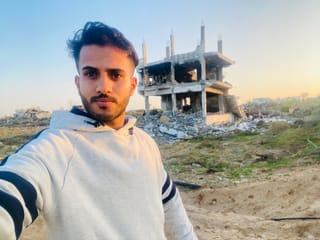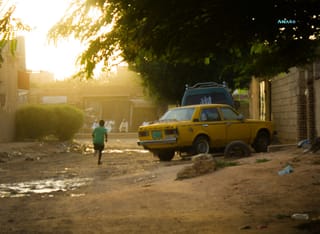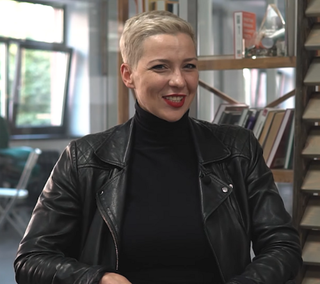Uncategorized Constitutional Reform in Chile and the Participation of Indigenous Peoples Mapuexpress The Chilean Constitutional Convention would be the first, among all the continent’s constituent assemblies, to include direct representatives of the nine Indigenous Peoples recognized in Chile’s 1993 Indigenous Law 19,253. As a result of large
by storiesHuman Rights, Iran, Women's Rights Honor Killings and the Struggle for Women’s Rights in Iran Written by H. S. A flower faded while blooming: Romina, a 14 year old Iranian girl, was beheaded by her father with a farming sickle. He thought Romina had ashamed the family
by stories
Rayhaneh Ameri, whose death was caused by profuse bleeding (Source: Iran International) Despite international outcries, the Islamic Government has attempted to cover-up the sentencing reduction of the perpetrator by asserting that Rayhaneh’s father killed her with an iron bar, which contradicted initial news coverage. Furthermore, Colonel Yousefi insisted that
by Anne McDonnellOpinions, Police Violence Why We Need to Change the Law Enforcement System America has a problem: police brutality. In 2017 alone, American police killed 1,147 people.1 Police – whose job it is to protect people – have killed 1,147 people.1 While individual police officers are responsible for the
by storiesUncategorized Finding Hope in Syria White Helmets Syria is a hard place to grapple with, even for people who live there. Especially for people who live, or lived, in target zones. White Helmets is trying to make a difference. White Helmets, a volunteer corps of rescuers who go into the
by storiesPrison Reform Coronavirus in Prisons: An essay The outbreak of the coronavirus has highlighted the flaws of the United States’ institutions. The healthcare system, for example, has become overwhelmed after the influx of patients who have contracted COVID-19. The flaws of the American criminal justice system have been exposed in
by storiesChina, Human Rights, Uyghurs The Global Magnitsky Act: Background, Application, and Impact on the Uyghur Crisis Overview The Global Magnitsky Act (or the The Global Magnitsky Human Rights Accountability Act) is a bipartisan Act passed in the United States that allows the US federal government to sanction officials from foreign
by stories
China took over the Xinjiang region (formerly known as East Turkestan) in 1949 (BBC, 2014). After the takeover, the Chinese Communist Party (CCP) began to promote the enrollment of students in public schools, while seemingly also embracing the use of regional languages other than Mandarin. Due to this initial embrace
by Anne McDonnellUncategorized Constitutional Reform in Chile and the Participation of Indigenous Peoples Mapuexpress The Chilean Constitutional Convention would be the first, among all the continent’s constituent assemblies, to include direct representatives of the nine Indigenous Peoples recognized in Chile’s 1993 Indigenous Law 19,253. As a result of large
by stories
Authors: Analis Rossi and Alejandra Vergara A In Gaza, where the soil is dry and the future uncertain, Gaza Sky Geeks was planting seeds of transformation. With laptops instead of shovels and codes instead of crops, they cultivate a new kind of harvest, one that brings new opportunities, hope, dignity,

By: Alejandra Vergara A The morning sun in Gaza no longer carries the promise of a new day, but merely the opportunity to survive another day. For Ahmed Al-Sharif, a 25-year-old from Nuseirat Camp, the sun was once a quiet invitation to paint, to laugh with family, to build a

The 27-page report, “The Civil War in Sudan: Actors, Impacts, and the Humanitarian Crisis,” documents the deepening humanitarian crisis resulting from Sudan’s civil conflict, compounded by a network of both domestic and international actors. With minimal accountability, powerful entities—such as the

Maria Kalesnikava is a Belarusian musician and political activist, who is a member of the Coordination Council Presidium which was formed in 2020 as a result of 2020 Belarusian post-election protests. Two actions have changed the life of Maria: the first one – to endorse the opposition candidate for the president
Written by Starlene Parris & Kasey Michaud Approximately 15% of all people living in state prisons experience a serious mental illness. What happens to these people? They are left to rot in prison, fighting against their own minds and a broken system they don’t fully understand. If you are
Uncategorized Constitutional Reform in Chile and the Participation of Indigenous Peoples Mapuexpress The Chilean Constitutional Convention would be the first, among all the continent’s constituent assemblies, to include direct representatives of the nine Indigenous Peoples recognized in Chile’s 1993 Indigenous Law 19,253. As a result of large
by storiesHuman Rights, Iran, Women's Rights Honor Killings and the Struggle for Women’s Rights in Iran Written by H. S. A flower faded while blooming: Romina, a 14 year old Iranian girl, was beheaded by her father with a farming sickle. He thought Romina had ashamed the family
by stories
Rayhaneh Ameri, whose death was caused by profuse bleeding (Source: Iran International) Despite international outcries, the Islamic Government has attempted to cover-up the sentencing reduction of the perpetrator by asserting that Rayhaneh’s father killed her with an iron bar, which contradicted initial news coverage. Furthermore, Colonel Yousefi insisted that
by Anne McDonnellOpinions, Police Violence Why We Need to Change the Law Enforcement System America has a problem: police brutality. In 2017 alone, American police killed 1,147 people.1 Police – whose job it is to protect people – have killed 1,147 people.1 While individual police officers are responsible for the
by storiesUncategorized Finding Hope in Syria White Helmets Syria is a hard place to grapple with, even for people who live there. Especially for people who live, or lived, in target zones. White Helmets is trying to make a difference. White Helmets, a volunteer corps of rescuers who go into the
by storiesPrison Reform Coronavirus in Prisons: An essay The outbreak of the coronavirus has highlighted the flaws of the United States’ institutions. The healthcare system, for example, has become overwhelmed after the influx of patients who have contracted COVID-19. The flaws of the American criminal justice system have been exposed in
by storiesChina, Human Rights, Uyghurs The Global Magnitsky Act: Background, Application, and Impact on the Uyghur Crisis Overview The Global Magnitsky Act (or the The Global Magnitsky Human Rights Accountability Act) is a bipartisan Act passed in the United States that allows the US federal government to sanction officials from foreign
by stories
China took over the Xinjiang region (formerly known as East Turkestan) in 1949 (BBC, 2014). After the takeover, the Chinese Communist Party (CCP) began to promote the enrollment of students in public schools, while seemingly also embracing the use of regional languages other than Mandarin. Due to this initial embrace
by Anne McDonnell